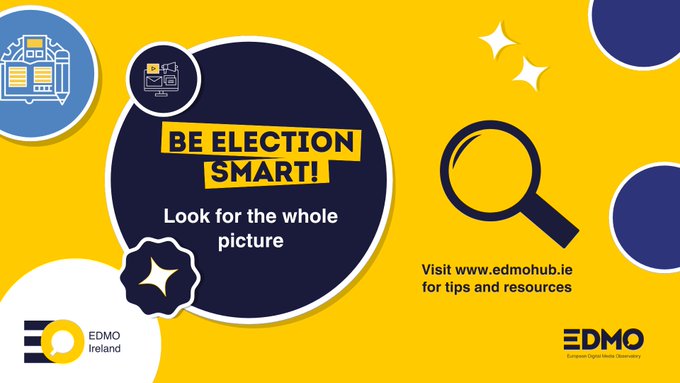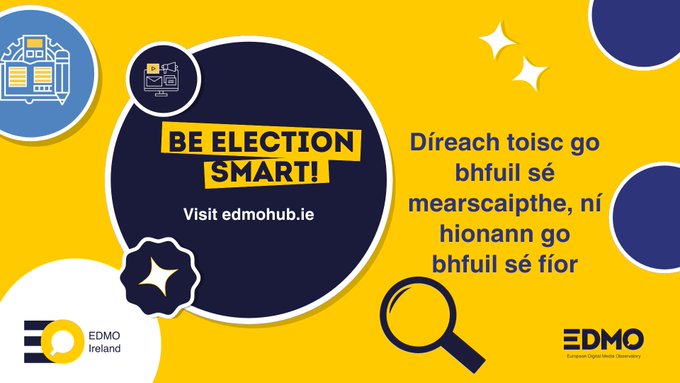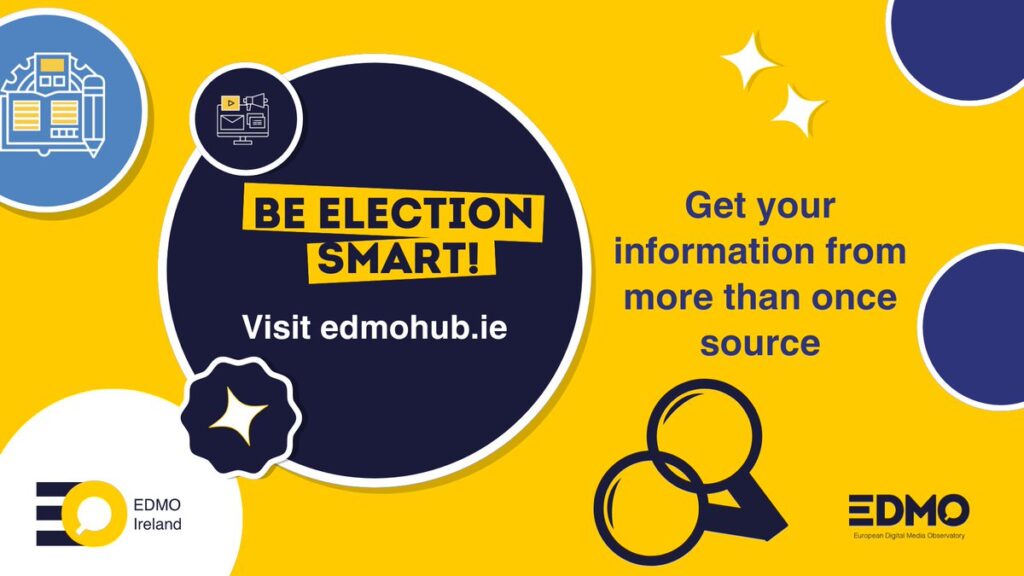Ahead of the European Elections, EDMO and the EDMO Hubs are working together to deliver a pan-European campaign highlighting practical tips and resources to help people develop their media literacy skills and make informed decisions based on accurate and reliable information.
From April 29, for six weeks, the EDMO Hubs will be publishing a new tip and practical advice every week and signposting users to a range of sources of support. For more information on the EU wide campaign, visit the main EDMO website and follow EDMO on Twitter.

TIP #1 READ MORE THAN THE HEADLINE
Life is complicated, and so is politics. Headlines are designed to catch your eye, but a headline can’t give the full story, and neither can a short social media post. If it sounds unbelievable, it probably is. So, read the whole story, not just the headline.
Headlines can be misleading without being completely false. Some headlines leave out information information that is only explained in the article. Other headlines are sensational. They grab your attention to generate clicks on the post, but the headline is not accurate. And some headlines really are untrue. They might even be accompanied by fake, AI-generated images. Don’t let media override your judgement: read more than the headline.

TIP #2 LOOK FOR THE WHOLE PICTURE
It only takes a few clicks to change or enhance digital content in ways that create an entirely different meaning. If you see content featuring a public figure doing or saying something sensational, be aware that it might be distorted or fake. Always view content with a critical eye – especially if it triggers strong emotional reactions.
Artificial Intelligence (AI) technologies can create images or videos that look like real people but are completely fake. This includes “deepfake” videos. Audio-only deepfakes are especially hard to verify. EDMO has additional tips on how to identify AI generated content.

TIP #3: JUST BECASUE IT’S VIRAL DOESN’T MEAN IT’S TRUE
Disinformation often provokes a strong emotional reaction and prompts sharing in a moment of outrage, excitement or disbelief – don’t believe something just because it’s going viral. Bots/fake accounts can exploit algorithms to amplify content online. Social media and messaging applications make it really easy to share information quickly to large groups of people. In addition, AI-powered technology can also be used to create fake profiles and promote false or inaccurate content, making it go viral with very little authentic sharing.

TIP #4: GET YOUR INFORMATION FROM MORE THAN ONE SOURCE
If a piece of information is only being reported from one source or one media type, it might not be the whole story. Ask yourself who produced it, why, and how it has reached you? Different editorial rules apply across different types of media. In general, there are more checks and balances required for information that is broadcast or published in print, compared to some information online.

TIP #5: GET YOUR VOTING INFORMATION FROM OFFICIAL SOURCES
Seek out reliable information on how, when, and where to vote in the elections from official sources.
- Visit An Coimisiún Toghcháin, The Electoral Commission, for official information on all Irish elections: https://www.electoralcommission.ie/
- Visit European Elections for official information on how to vote in each country and results: https://elections.europa.eu/en/how-to-vote/ie/
Be wary of any content that suggests fraud is taking place. Disinformation around the electoral process often spreads before and after elections, aiming to delegitimise elections through unfounded claims of voter fraud, foreign influences, and unfair practices. To find out more, read the EDMO report on Disinformation narratives during the 2023 elections in Europe
EDMO Ireland is comprised of DCU FuJo, TheJournal, and NewsWhip.
